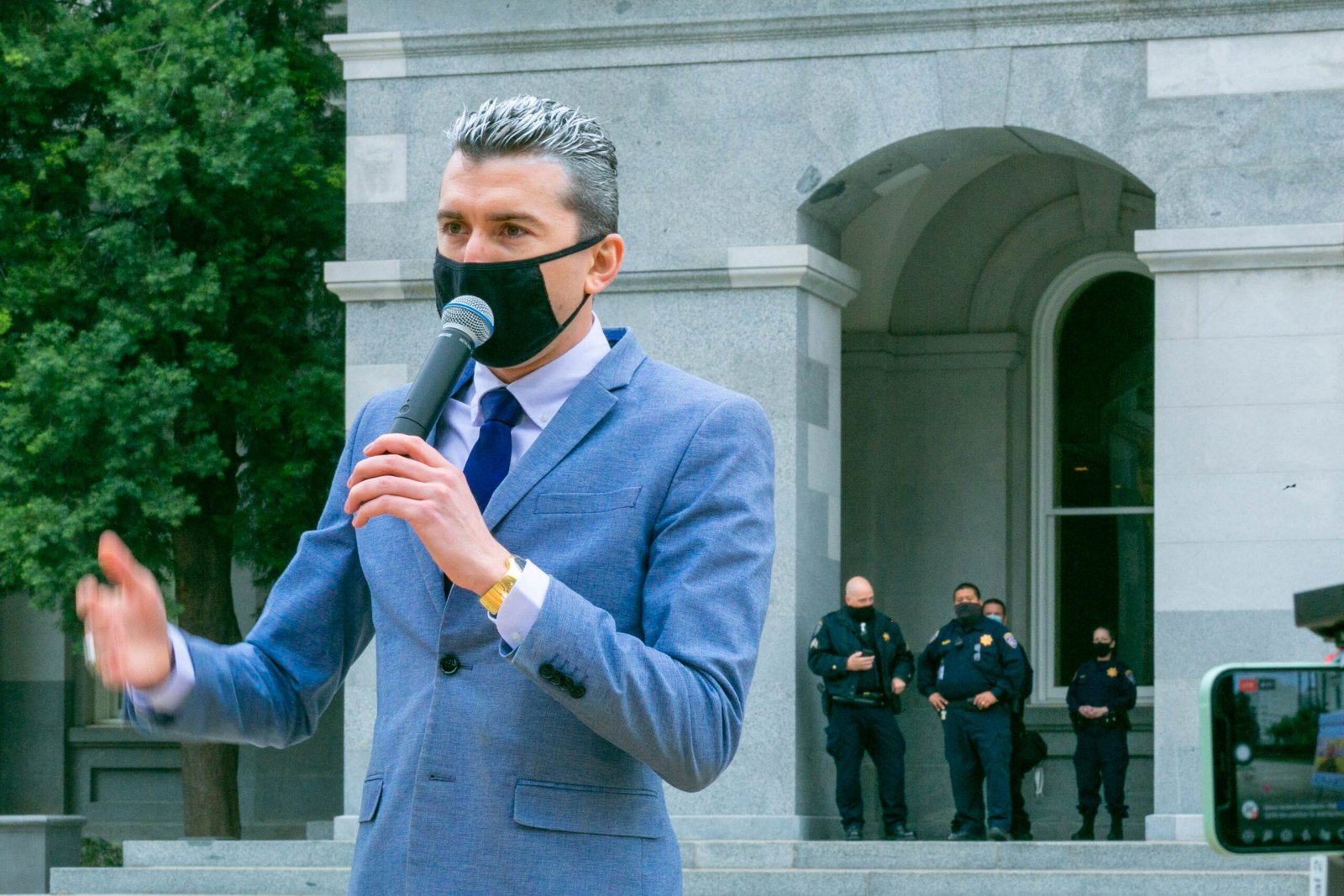How To Address The Governor?
For addressing the Governor To address the Governor, use “Dear Governor [Last Name]” in correspondence written by hand or “Governor [Last Name]” when speaking directly.
How Do You Write An Official Letter To The Governor?
To write an official letter to the Governor, use “His/Her Excellency [Full Name], Governor of [State Name]” as a salutation. Writing an official letter to the Governor demands a professional and respectful manner to effectively communicate your message. When you’re expressing concern, seeking help, or expressing your opinion, writing the letter correctly is crucial.
Use the Correct Salutation
Begin your formal correspondence with an appropriate salutation. Address the Governor in the form of “His/Her Excellency [Full Name], Governor of [State Name].” The correct title and full name will add an element of formality to your letter.
Research the Correct Title and Name
Before addressing the governor, ensure you have the correct title and complete name. Verify any titles or honorifics used to address your State’s government. include the Governor’s Official Title.
When you salute, you should use the appropriate title that is representative of the official status of the governor. For example, if the governor is an official military title, you should include the title in the salutation. The correct title gives an air of respect for their position.
Check for Updates or Changes
Check to ensure that you have up-to-date information on the governor’s name, title, and other relevant information. Governors may change due to appointments or elections. Therefore, it is essential to verify the accuracy of the information.
Follow Formal Language
Write formally to keep an appropriate tone. Avoid using slang, contractions, or language that is too casual. Maintain a professional and respectful manner of conduct.
Introduce Yourself
After the salutation, Introduce yourself briefly. Namely, state your name, title, or affiliation, if pertinent, and the reason for your letter. This helps the governor know what the governor wrote and why.
Clearly State the Purpose
In the first paragraph, clearly state the reason for your letter. If you’re promoting a cause, seeking assistance, or expressing your opinion regarding a particular issue, Make it clear from the beginning.
Provide Relevant Information
In the next paragraphs, include any information that will support your argument. Use facts, data, or personal experience to support your assertions. Be focused and organized to ensure your message is consistent.
Be Concise and Relevant
Governors are busy, So make sure your letter is short. Concentrate on the essential details that the governor has to know. Beware of unnecessary information that could make the letter too long.
Address the Governor’s Role
Recognize the governor’s position. Recognize their authority and decision-making power. This indicates that you know and address their position with respect.
What Is Your Way Of Referring To Her Excellency?
While it is not a title for an office, The honorific Excellency precedes different titles that the holder holds in both writing and speech. For a reference to the official, it uses the form of His or Her Excellency; in direct addresses, it is Your Excellency or, less formally, Excellency.
Addressing an official of high rank with the designation “Her Excellency” requires proper usage and etiquette that convey respect. If you are addressing diplomats, ambassadors, or female governors, knowing the proper way to utilize “Her Excellency” correctly is crucial.
Understand the Title’s Significance
“Her Excellency” is an honorific title used to refer to female officials who hold high-ranking posts. It demonstrates respect and professionalism, especially in official or diplomatic settings. The term is commonly used to address female ambassadors, governors, high commissioners, governors, and other prestigious female office holders.
Use the Title in Written Communication
When you are writing an email, letter, or other formal communication to female officials holding offices of high rank, the name “Her Excellency” should be used in the salutation. For example, the salutation could be: “Her Excellency [Full Name], Ambassador of [Country Name].” This will ensure that the message begins with the appropriate degree of respect.
Include the Full Name
If you use “Her Excellency” in written communications, Always mention the official’s full name following the title. The full name provides clarity and eliminates any confusion. For instance, “Her Excellency [Full Name]” is an eloquent and respectable introduction.
Refer to the Office
In addition to the name “Her Excellency,” it’s normal to include the specific position or office the person is in. For instance, you could refer to a female governor as “Her Excellency [Full Name], Governor of [State Name].” This is clearer and recognizes the official’s role.
Use Formal Language
When you address or refer to “Her Excellency,” use formal and respectful language throughout the exchange. Avoid slang, colloquialisms, or language that is too casual. Keep a tone in place that highlights the significance of the role played by the individual.
Use the Title Verbally
If you are meeting “Her Excellency” in person or at an official event, You could use the term “Her Excellency” followed by her last name. For instance, you could say, “Good afternoon, Her Excellency [Last Name].” This shows that you know and appreciate her role.
Research Proper Pronunciation
If you’re not sure what to say in the correct name of the official, make sure you look it up. Properly pronounced names display your confidence and professionalism.
Follow Cultural Norms
Different countries and cultures may have different ways to interpret and regard titles. Knowing the cultural customs and norms when speaking about “Her Excellency” in international contexts is crucial.
Observe the written protocol
When writing formal protocols like invitations and official documents, “Her Excellency” is often used to describe the person’s title. For instance, if you invite female ambassadors to an occasion, the invitation could be written as: “The Honorable [Full Name], Ambassador of [Country Name], and [Spouse’s Name].” This is in line with the accepted protocol for speaking to dignitaries.
Show Genuine Respect
When you address “Her Excellency,” whether in person or by writing, be sure to treat the conversation with respect and care. The title is a symbol of the official’s high standing and contribution.
Double-Check Spelling and Titles
Before sending any written correspondence, make sure you check the spelling of the official’s name and the specific title. Accuracy in both areas is vital to maintaining professional conduct and respect.
What Is The Proper Way To Address The Governor General Of NSW?
When the first time a candidate is delivered to the Governor, it is the Governor who addresses her in the form of “Your Excellency” and, from then on, “Ma’am” or “Governor.” The husband of the Governor, Mr. Governor, Mr. Mr. Wilson” or “Sir” at all times
When speaking to the Governor-General of New South Wales (NSW), It is important to follow the proper manner of speaking and use words to show respect. The Governor-General is the representative of the monarchy of Australia and holds a high post.
Understand the Role and Significance
The Governor-General of NSW is the representative of the Queen in the State and performs constitutional, ceremonial, and representative duties. It is important to know the significance and role of the Governor-General to address them properly.
Use the Correct Title
When you address the Governor-General of NSW, Use the name “His/Her Excellency” followed by the Governor’s full name. Governor’s statements should be as follows: “His/Her Excellency [Full Name], Governor of New South Wales.” This title shows respect and recognizes the Governor’soffice. aGovernor
Include Formal Honorifics
In formal written communications, the full title of honor is customary. For example, the salutation could be written as: “His/Her Excellency General the Honourable [Full Name], AC [or other applicable post-nominal].” Honorifics can convey a sense of respect for the Governor and honor his accomplishments and contributions.
Use Formal Language
When referring to or addressing the Governor-General, use appropriate and formal language. Use a tone that conveys the importance of the Governor’s job as a representative of the monarchy and the State.
Refer to the Office
In both verbal and written communications, make sure to mention the specific office of the Governor-General in charge. For instance, you could address the Governor-General by saying, “His/Her Excellency [Full Name], Governor-General of New South Wales.” This is clear and demonstrates the official’s job.
Research Correct Pronunciation
If you’re unsure what to say, the correct pronunciation of the Governor’s name is Governor. Study it. The correct pronunciation of the name shows your professionalism and respect.
Observe the written protocol.
In formal writing protocols, like invitations or official documents, you must follow the established guidelines. For instance, an invitation from a government agency could read, “The Governor-General of New South Wales and [Spouse’s Name].” This is consistent with the protocol for greeting dignitaries.
Show Genuine Respect
When speaking to or engaging with the Governor-General, approach the interaction respectfully and thoughtfully. Remember that the title “His/Her Excellency” signifies the Governor’s outstanding leadership and contribution to
Double-Check Spelling and Titles
Before you send any written communications, Make sure to double-check the spelling of the Governor’s name and any honorary governor titles specific to the Governor. Achieving accuracy in these areas is essential to maintaining the professionalism and respect of others.
Be Courteous and Attentive
In verbal interactions, maintain a courteous demeanor. Pay attention to what the Governor says and then respond respectfully and thoughtfully. A positive attitude is reflected in your company and in you personally.
FAQ’s
What is the appropriate way to address a Governor in a formal letter?
When addressing a Governor in a formal letter, you should begin with “Dear Governor [Last Name].” For example, “Dear Governor Smith.”
How do I address the Governor in person during a formal event?
In person, you should address the Governor as “Governor [Last Name].” For instance, you would say, “Governor Johnson, it’s an honor to meet you.”
Is it acceptable to use “Mr.” or “Ms.” before the Governor’s name in conversation?
No, it’s more appropriate to use the title “Governor” instead of “Mr.” or “Ms.” when addressing the Governor in conversation or in writing.
What if I’m introducing the Governor in a speech or presentation?
When introducing the Governor in a speech or presentation, you should use their full title and name: “Ladies and gentlemen, please welcome the honorable Governor [Full Name].”
How should I address a former Governor?
You can address a former Governor as “Governor [Last Name]” even after they’ve left office, as a sign of respect for their past role.
What’s the correct way to address a letter if I’m unsure of the Governor’s gender?
If you’re unsure of the Governor’s gender, it’s best to use the neutral title “Governor [Last Name]” in your letter’s salutation. This ensures you’re being respectful without making assumptions about gender.

















